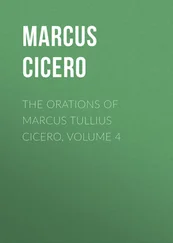Table of Contents
Meditations
Marcus Aurelius
INTRODUCTION
THE FIRST BOOK
THE SECOND BOOK
THE THIRD BOOK
THE FOURTH BOOK
THE FIFTH BOOK
THE SIXTH BOOK
THE SEVENTH BOOK
THE EIGHTH BOOK
THE NINTH BOOK
THE TENTH BOOK
THE ELEVENTH BOOK
THE TWELFTH BOOK
NOTES
GLOSSARY
AudioBook
Meditations
Marcus Aurelius
Published:180 Categorie(s):Non-Fiction, Human Science, Philosophy
MARCUS AURELIUS ANTONINUS was born on April 26, A.D. 121. His real name was M. Annius Verus, and he was sprung of a noble family which claimed descent from Numa, second King of Rome. Thus the most religious of emperors came of the blood of the most pious of early kings. His father, Annius Verus, had held high office in Rome, and his grandfather, of the same name, had been thrice Consul. Both his parents died young, but Marcus held them in loving remembrance. On his father's death Marcus was adopted by his grandfather, the consular Annius Verus, and there was deep love between these two. On the very first page of his book Marcus gratefully declares how of his grandfather he had learned to be gentle and meek, and to refrain from all anger and passion. The Emperor Hadrian divined the fine character of the lad, whom he used to call not Verus but Verissimus, more Truthful than his own name. He advanced Marcus to equestrian rank when six years of age, and at the age of eight made him a member of the ancient Salian priesthood. The boy's aunt, Annia Galeria Faustina, was married to Antoninus Pius, afterwards emperor. Hence it came about that Antoninus, having no son, adopted Marcus, changing his name to that which he is known by, and betrothed him to his daughter Faustina. His education was conducted with all care. The ablest teachers were engaged for him, and he was trained in the strict doctrine of the Stoic philosophy, which was his great delight. He was taught to dress plainly and to live simply, to avoid all softness and luxury. His body was trained to hardihood by wrestling, hunting, and outdoor games; and though his constitution was weak, he showed great personal courage to encounter the fiercest boars. At the same time he was kept from the extravagancies of his day. The great excitement in Rome was the strife of the Factions, as they were called, in the circus. The racing drivers used to adopt one of four colours—red, blue, white, or green—and their partisans showed an eagerness in supporting them which nothing could surpass. Riot and corruption went in the train of the racing chariots; and from all these things Marcus held severely aloof.
In 140 Marcus was raised to the consulship, and in 145 his betrothal was consummated by marriage. Two years later Faustina brought him a daughter; and soon after the tribunate and other imperial honours were conferred upon him.
Antoninus Pius died in 161, and Marcus assumed the imperial state. He at once associated with himself L. Ceionius Commodus, whom Antoninus had adopted as a younger son at the same time with Marcus, giving him the name of Lucius Aurelius Verus. Henceforth the two are colleagues in the empire, the junior being trained as it were to succeed. No sooner was Marcus settled upon the throne than wars broke out on all sides. In the east, Vologeses III. of Parthia began a long-meditated revolt by destroying a whole Roman Legion and invading Syria (162). Verus was sent off in hot haste to quell this rising; and he fulfilled his trust by plunging into drunkenness and debauchery, while the war was left to his officers. Soon after Marcus had to face a more serious danger at home in the coalition of several powerful tribes on the northern frontier. Chief among those were the Marcomanni or Marchmen, the Quadi (mentioned in this book), the Sarmatians, the Catti, the Jazyges. In Rome itself there was pestilence and starvation, the one brought from the east by Verus's legions, the other caused by floods which had destroyed vast quantities of grain. After all had been done possible to allay famine and to supply pressing needs—Marcus being forced even to sell the imperial jewels to find money—both emperors set forth to a struggle which was to continue more or less during the rest of Marcus's reign. During these wars, in 169, Verus died. We have no means of following the campaigns in detail; but thus much is certain, that in the end the Romans succeeded in crushing the barbarian tribes, and effecting a settlement which made the empire more secure. Marcus was himself commander-in-chief, and victory was due no less to his own ability than to his wisdom in choice of lieutenants, shown conspicuously in the case of Pertinax. There were several important battles fought in these campaigns; and one of them has become celebrated for the legend of the Thundering Legion. In a battle against the Quadi in 174, the day seemed to be going in favour of the foe, when on a sudden arose a great storm of thunder and rain the lightning struck the barbarians with terror, and they turned to rout. In later days this storm was said to have been sent in answer to the prayers of a legion which contained many Christians, and the name Thundering Legion should be given to it on this account. The title of Thundering Legion is known at an earlier date, so this part of the story at least cannot be true; but the aid of the storm is acknowledged by one of the scenes carved on Antonine's Column at Rome, which commemorates these wars.
The settlement made after these troubles might have been more satisfactory but for an unexpected rising in the east. Avidius Cassius, an able captain who had won renown in the Parthian wars, was at this time chief governor of the eastern provinces. By whatever means induced, he had conceived the project of proclaiming himself emperor as soon as Marcus, who was then in feeble health, should die; and a report having been conveyed to him that Marcus was dead, Cassius did as he had planned. Marcus, on hearing the news, immediately patched up a peace and returned home to meet this new peril. The emperors great grief was that he must needs engage in the horrors of civil strife. He praised the qualities of Cassius, and expressed a heartfelt wish that Cassius might not be driven to do himself a hurt before he should have the opportunity to grant a free pardon. But before he could come to the east news had come to Cassius that the emperor still lived; his followers fell away from him, and he was assassinated. Marcus now went to the east, and while there the murderers brought the head of Cassius to him; but the emperor indignantly refused their gift, nor would he admit the men to his presence.
On this journey his wife, Faustina, died. At his return the emperor celebrated a triumph (176). Immediately afterwards he repaired to Germany, and took up once more the burden of war. His operations were followed by complete success; but the troubles of late years had been too much for his constitution, at no time robust, and on March 17, 180, he died in Pannonia.
The good emperor was not spared domestic troubles. Faustina had borne him several children, of whom he was passionately fond. Their innocent faces may still be seen in many a sculpture gallery, recalling with odd effect the dreamy countenance of their father. But they died one by one, and when Marcus came to his own end only one of his sons still lived—the weak and worthless Commodus. On his father's death Commodus, who succeeded him, undid the work of many campaigns by a hasty and unwise peace; and his reign of twelve years proved him to be a ferocious and bloodthirsty tyrant. Scandal has made free with the name of Faustina herself, who is accused not only of unfaithfulness, but of intriguing with Cassius and egging him on to his fatal rebellion, it must be admitted that these charges rest on no sure evidence; and the emperor, at all events, loved her dearly, nor ever felt the slightest qualm of suspicion.
Читать дальше












